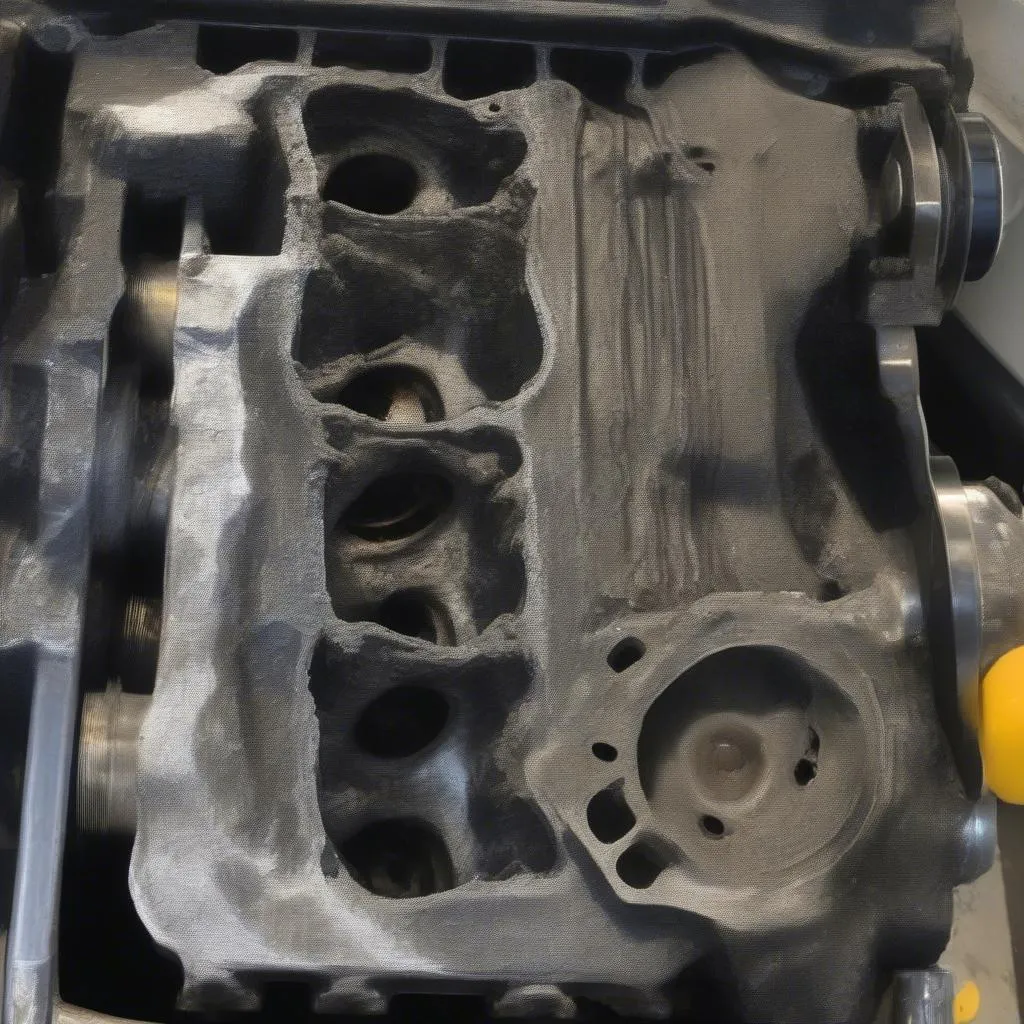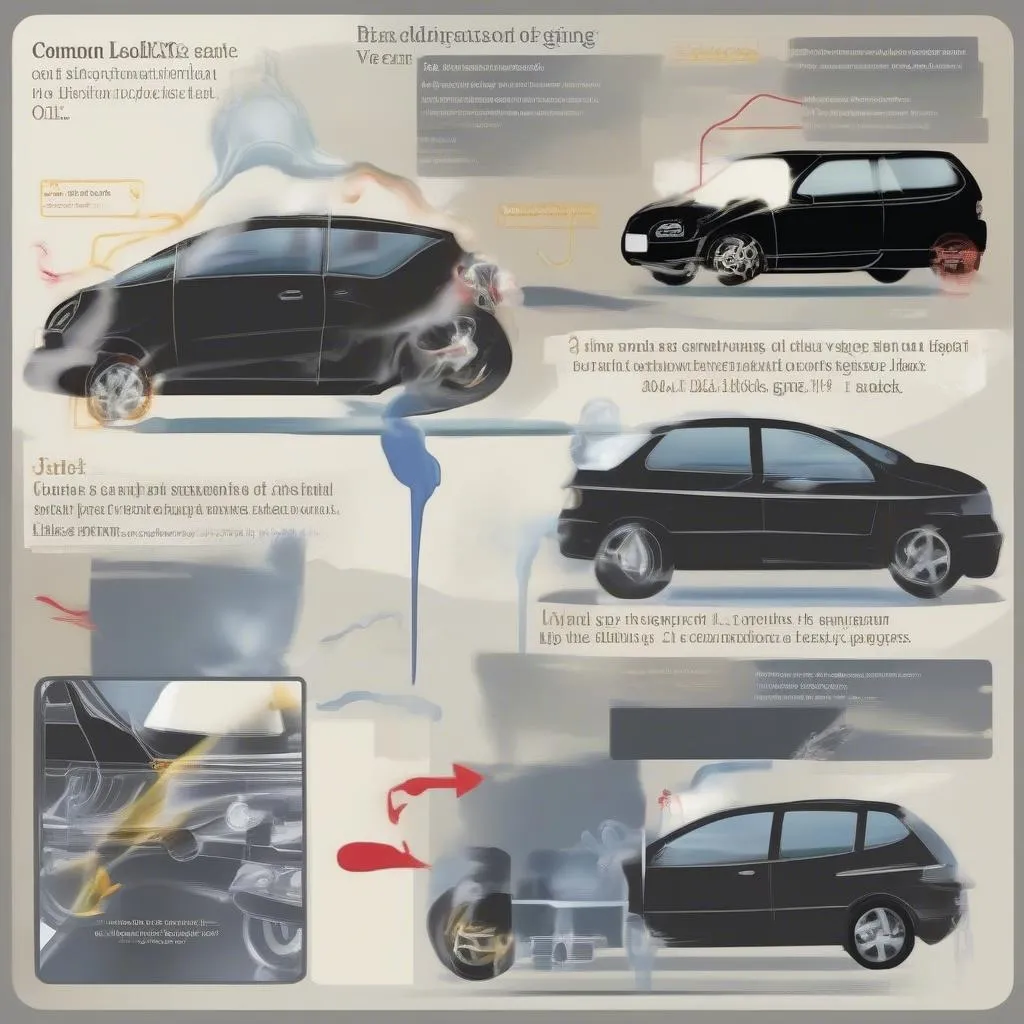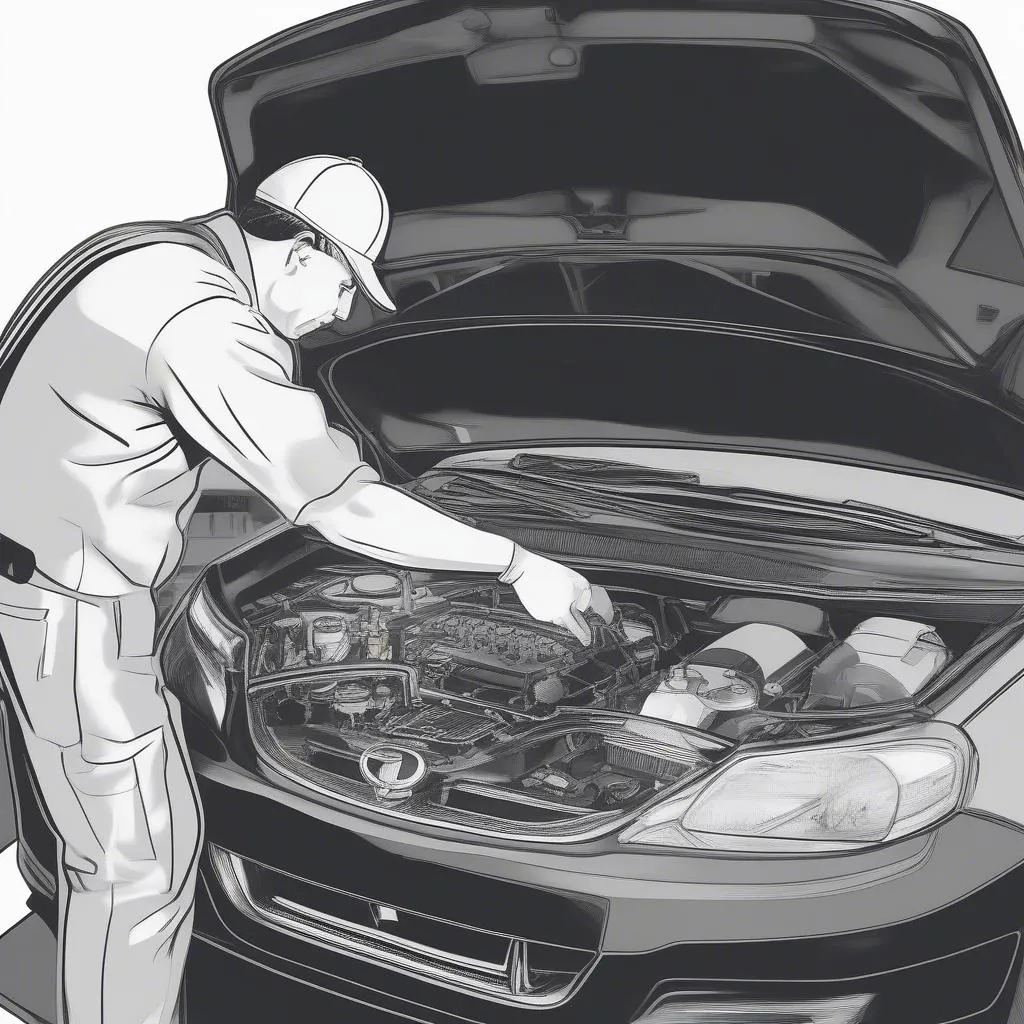Imagine pulling into your driveway after a long day, only to notice a puddle of green or orange liquid beneath your car. It’s a sight that can send shivers down your spine – is it coolant leaking?
This is a common issue many car owners face, and it’s crucial to understand why it happens and how to address it. In this article, we’ll dive into the world of coolant leaks, exploring the causes, symptoms, and solutions to keep your engine running cool and your car on the road.
Understanding Coolant Leaks
Coolant, also known as antifreeze, plays a vital role in keeping your engine at the optimal operating temperature. It circulates through the cooling system, absorbing heat from the engine and then releasing it to the radiator where it’s cooled down by airflow. This process prevents the engine from overheating, which could lead to serious damage.
When coolant leaks, it can compromise the efficiency of the cooling system, leading to overheating and potential engine failure.
Causes of Coolant Leaks: A Mechanic’s Perspective
From a mechanic’s standpoint, coolant leaks can stem from a variety of issues, including:
- Cracked or corroded hoses: Over time, hoses can become brittle, crack, or corrode, leading to leaks.
- Damaged radiator: The radiator, responsible for cooling the coolant, can be damaged by debris, corrosion, or wear and tear.
- Faulty water pump: This pump circulates the coolant throughout the system. If it fails, it can cause leaks or prevent proper cooling.
- Loose or damaged clamps: The clamps that secure hoses to the radiator or other components may loosen or fail, leading to leaks.
- Head gasket failure: In severe cases, a blown head gasket can allow coolant to leak into the combustion chamber, causing a range of issues.
The Importance of Timely Intervention: A Technical Perspective
From a technical standpoint, a coolant leak can be a serious matter. If left unaddressed, it can lead to engine overheating, causing damage to crucial engine components like the cylinder head, pistons, and even the engine block.
 Engine damage caused by a coolant leak
Engine damage caused by a coolant leak
The Economic Impact of Coolant Leaks
Beyond mechanical damage, coolant leaks can also have a significant economic impact. Not only does replacing damaged parts come with a cost, but a leaky cooling system can also lead to increased fuel consumption and reduced engine performance.
Symptoms of a Coolant Leak
Identifying a coolant leak early can save you from costly repairs. Here are some common signs:
- Sweet, syrupy smell: Coolant has a distinct sweet smell. If you notice this odor coming from your engine bay, it could be a sign of a leak.
- Low coolant level: Regularly check your coolant reservoir. If the level is low, it indicates a leak.
- Steam or smoke coming from the engine: A leak can cause coolant to vaporize and release steam or smoke from the engine compartment.
- White smoke from the exhaust pipe: If coolant is leaking into the combustion chamber, it can cause white smoke to come out of the exhaust.
- Coolant in the oil: Coolant leaking into the engine can contaminate the oil, giving it a milky appearance.
 Common symptoms of a coolant leak
Common symptoms of a coolant leak
Fixing a Coolant Leak
The solution to a coolant leak depends on the underlying cause.
Common Solutions
- Replacing hoses: If the hoses are cracked or damaged, they need to be replaced with new ones.
- Repairing or replacing the radiator: A damaged radiator can be repaired or replaced, depending on the severity of the damage.
- Replacing the water pump: A faulty water pump should be replaced with a new one.
- Tightening or replacing clamps: Loosen or damaged clamps need to be tightened or replaced to ensure secure connections.
- Head gasket repair or replacement: A blown head gasket requires a major repair, typically involving a replacement.
Prevention is Key: A Pro’s Tips
Preventative maintenance is crucial to avoid coolant leaks. Here are some tips from experienced mechanics:
- Regularly check coolant levels: Make it a habit to check your coolant reservoir every week or two.
- Inspect hoses for signs of wear and tear: Check hoses for cracks, bulges, and leaks.
- Have your cooling system serviced regularly: Get your cooling system inspected and serviced every two years or as recommended by your car manufacturer.
- Avoid driving with a low coolant level: Running your engine with low coolant can lead to overheating and damage.
 Preventative maintenance tips for avoiding coolant leaks
Preventative maintenance tips for avoiding coolant leaks
FAQ: Common Questions About Coolant Leaks
Q: What color should coolant be?
A: Coolant comes in various colors, including green, orange, pink, and blue. The color depends on the type of coolant and the manufacturer. However, if your coolant is brown or rusty, it could be a sign of contamination.
Q: How much does it cost to fix a coolant leak?
A: The cost of fixing a coolant leak can vary depending on the cause and the severity of the damage. A simple hose replacement can cost a few hundred dollars, while a head gasket repair can cost several thousand dollars.
Q: Is it safe to drive with a coolant leak?
A: It’s not safe to drive with a coolant leak. Driving with a leaking cooling system can cause overheating, which can lead to serious engine damage.
Q: What happens if I don’t fix a coolant leak?
A: If you don’t fix a coolant leak, your engine will overheat, which can cause a variety of problems, including:
- Engine damage: Overheating can damage the engine’s cylinder head, pistons, and other components.
- Reduced engine performance: A hot engine won’t run as efficiently, leading to reduced power and performance.
- Increased fuel consumption: A hot engine uses more fuel.
- Increased emissions: A hot engine produces more emissions.
Q: Can I add coolant to my car myself?
A: You can add coolant to your car, but it’s important to use the correct type of coolant. Consult your owner’s manual for the recommended coolant type for your vehicle.
Conclusion
A coolant leak can be a stressful situation, but with proper knowledge and action, you can fix it and keep your car running smoothly. By understanding the causes, symptoms, and solutions, you can ensure your cooling system remains healthy and your engine stays cool.
Remember, if you suspect a coolant leak, don’t hesitate to contact a qualified mechanic for diagnosis and repair.
For professional assistance with diagnostics and repair, contact us at Diag XCar! Our team of experts is available 24/7 to help you resolve any automotive issues.


